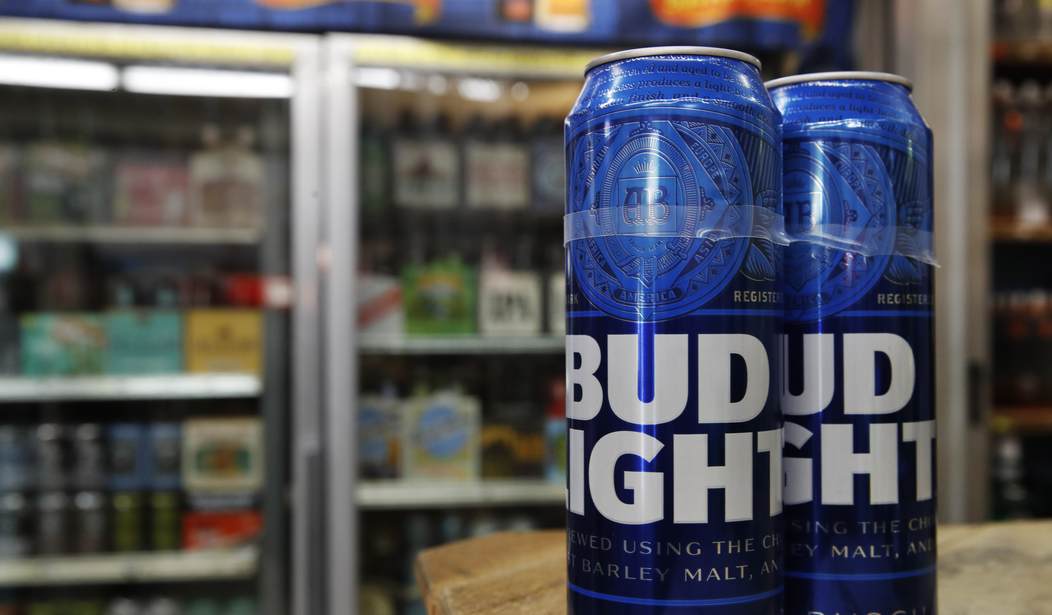If the top brass at Anheuser-Busch thought that the controversy over its partnership with Dylan Mulvaney would blow over in a few weeks, it just got an expensive dose of reality. The beverage company has reportedly informed wholesalers that it is willing to repurchase cases of unsold and expired Bud Light beer. So not only has there been a catastrophic drop in sales of Bud Light despite huge price reductions and incentives — including giving away beer — but now they’re also literally buying back their own product. If that’s not the sign of an unfixable disaster, I don’t know what is.
The move also comes after Anheuser-Busch has been making efforts to repair the damage it inflicted on its customers. Alissa Heinerscheid, Bud Light’s vice president of marketing, and Daniel Blake, the group vice president for Marketing, have been placed on leave. For the first time ever, Bud Light is sponsoring a veterans group, an effort that will be supported by a commercial campaign using country music and football themes.
Boycotts, particularly those rooted in political or cultural disputes, are typically unsuccessful. Past instances, such as boycotts against Georgia’s heartbeat bill and election integrity law or Nike’s partnership with Colin Kaepernick, did not significantly impact their targets. Sometimes, they even have the opposite effect. For example, Chick-fil-A experienced sales growth after the CEO’s stance on same-sex marriage became public, despite widespread calls for a boycott. While some individuals may choose to boycott a company based on political reasons, others may actually be more inclined to support it as a result, minimizing the impact of the boycott.
So why did the Bud Light boycott work so well? I have a theory.
Despite the constant corporate virtue-signaling and Hollywood’s efforts to normalize transgenderism, the majority of Americans don’t support trans ideology. It’s not even an issue that divides America. According to a recent survey conducted by the Washington Post-KFF, nearly 70% of Americans oppose the use of puberty blockers for children, while almost 60% are against providing hormone treatments to teenagers who identify as transgender. Roughly 80% of respondents also find it “inappropriate” for teachers to discuss “trans identity” with children in kindergarten to third grade, 70% say the same in regard to fourth and fifth graders, and 52% believe that transgender issues should not be addressed with middle schoolers.
Related: Voters Don’t Like Transgenders Playing Women’s Sports
It’s quite clear that Dylan Mulvaney’s primary audience is young people, making his partnership with a beer company problematic from the get-go. But, seeing as Americans have real problems with the transgender ideology being promoted to children, Bud Light’s effective endorsement of Mulvaney was bound to elicit a strong, negative response that did not have an equal and opposite reaction. On top of that, with the seemingly endless alternative products, boycotting Bud Light was really, really easy to do.
While some will point out that Anheuser-Busch has offended both sides of the trans issue because its backtracking offended LGBTQ activists, and that’s why this boycott has been so effective, they fail to understand something significant. Dylan Mulvaney posted the video of himself with his custom cans of Bud Light on April 1, 2023. Anheuser-Busch didn’t first attempt to distance itself from Mulvaney until May 4, 2023 — more than a month later. That’s more than four weeks in which so-called LGBTQ allies could have been supporting Bud Light to balance out the boycott. Frankly, I suspect plenty did, but it wasn’t enough. Look at the aforementioned poll; that’s why their efforts failed to minimize the impact of the boycott.










